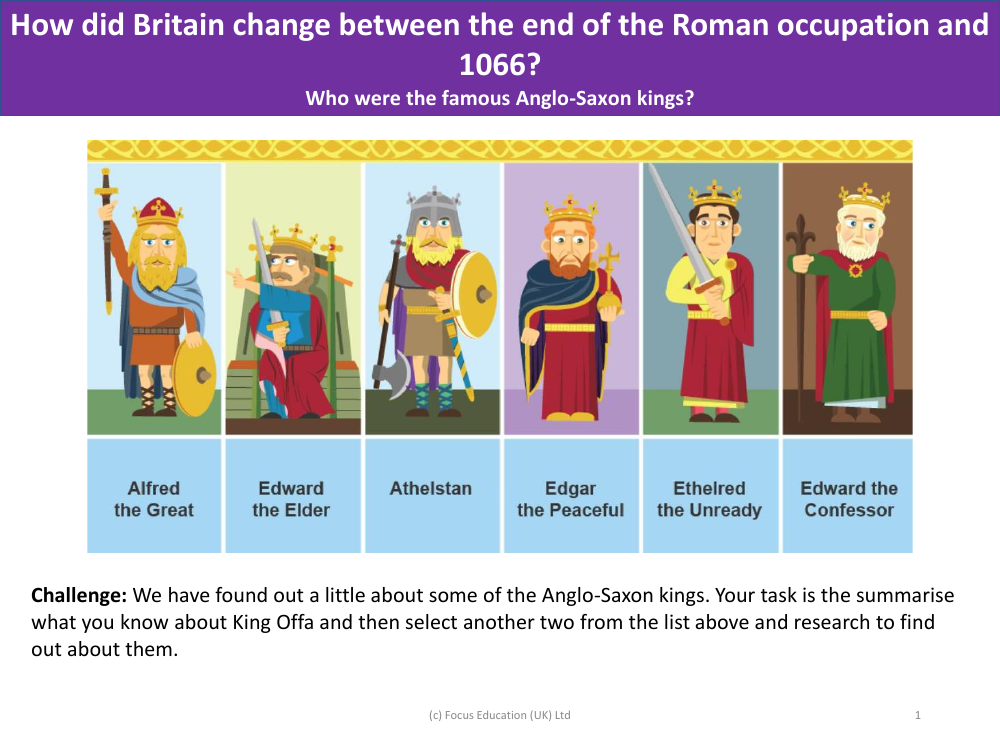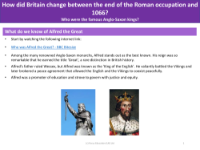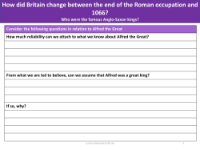Anglo-Saxon kings - Research task

History Resource Description
King Offa is one of the most notable Anglo-Saxon monarchs, known for his reign over the kingdom of Mercia from 757 to 796 AD. He is particularly famous for the construction of Offa's Dyke, a large earthen barrier that roughly demarcates the border between England and Wales, signifying his power and the extent of his territory. Offa's rule was marked by significant achievements, including the establishment of a sophisticated coinage system and diplomatic relations with the Frankish court. His reign was a period of relative stability and economic growth within Mercia, which became a dominant power among the Anglo-Saxon kingdoms under his leadership. To gain a comprehensive understanding of the era, students are encouraged to research two additional kings from the Anglo-Saxon period, exploring their contributions and the historical context of their reigns.
Between the end of Roman occupation and the year 1066, Britain underwent profound changes. The departure of the Romans led to a power vacuum that was filled by various Germanic tribes, including the Angles, Saxons, and Jutes, who established their own kingdoms across the land. This period saw the gradual emergence of the heptarchy, the seven kingdoms of the Anglo-Saxons, and the cultural assimilation and transformation that created a distinct Anglo-Saxon identity. The landscape of Britain evolved with the construction of new settlements, the spread of Christianity, and the development of Old English language and literature. The famous Anglo-Saxon kings, such as Alfred the Great, who defended his kingdom against Viking invasions, and Æthelstan, the first king to achieve some level of overlordship over the entire English territory, played pivotal roles in shaping the nation's history leading up to the Norman Conquest in 1066.





